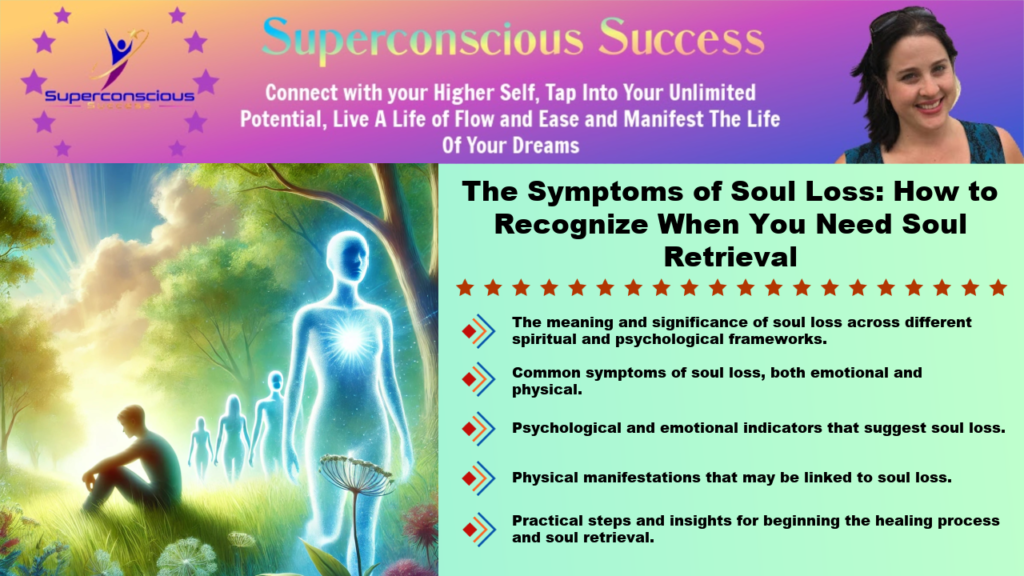
In this blog post, you’ll discover the concept of soul loss, exploring its spiritual, psychological, and physical dimensions. We’ll delve into what soul loss means, its common symptoms, and how it affects your well-being. You’ll learn to recognize the signs of soul loss in yourself and others, understand the underlying causes, and explore the journey towards healing and soul retrieval. By the end, you’ll have a comprehensive understanding of soul loss and practical insights to begin your path toward holistic restoration and balance.
1. Understanding Soul Loss: What It Means to Lose Parts of Your Soul
Imagine soul loss as a profound experience. Many cultures view soul loss as a significant spiritual event. They believe parts of your soul can fragment due to trauma, emotional distress, or major life changes. For instance, shamanic traditions see soul loss as a condition needing immediate healing to restore your wholeness and balance.
In modern spiritual practices, soul loss often means dissociation of your essence or life force. This survival mechanism activates during overwhelming circumstances. A part of your soul detaches to protect you from unbearable pain or trauma. Although protective, this disconnection can lead to emptiness, disconnection, and a loss of purpose over time. Consequently, the fragmented parts of your soul remain stuck in the past, unable to return without deliberate healing.
Psychologically, soul loss resembles dissociation or PTSD. You might experience chronic depression, anxiety, numbness, or feel not fully present in your life. Therefore, these symptoms indicate a deeper, unresolved emotional wound needing attention to regain your sense of completeness and well-being.
The reasons for soul loss vary and are deeply personal. Common triggers include traumatic events like accidents, abuse, or losing a loved one. Additionally, major life changes, such as divorce or job loss, can also lead to soul loss. Emotional distress from prolonged stress or unresolved grief can fragment your soul.
Understanding soul loss is crucial. It helps recognize its symptoms and the need for soul retrieval. Addressing both the emotional and spiritual dimensions of trauma is essential. By acknowledging soul loss, you can embark on a path toward holistic healing and restoration.

















